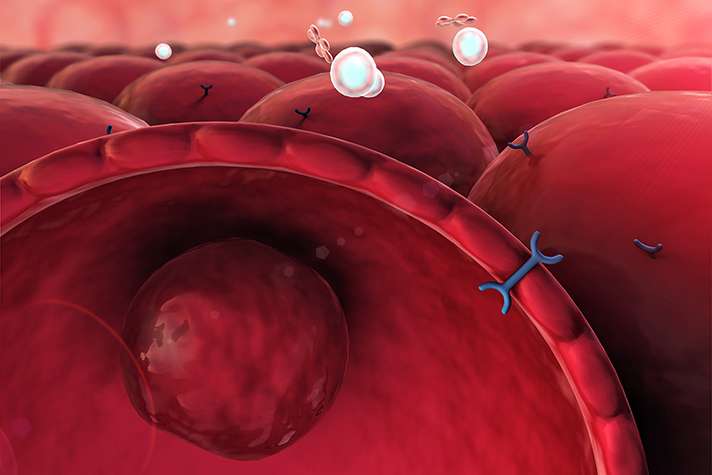Study reveals protein to target in type 2 diabetes

When the body's cells don't respond normally to insulin—a condition known as insulin resistance—blood glucose levels can increase, resulting in type 2 diabetes. Researchers have long known that insulin resistance is linked to defects in the insulin receptor (which controls glucose uptake) in multiple organs, including the liver.
To study the underlying mechanism, a team of researchers led by Narendra Wajapeyee, assistant professor of pathology, and Gerald Shulman, professor of cellular and molecular physiology and internal medicine, used a genomic technique to screen more than 600 proteins. They found that one of the proteins, MARCH1, impairs insulin by promoting the breakdown of the insulin receptor on the cell surface. MARCH1, which is increased in obese individuals, could be a promising new target for drugs to treat type 2 diabetes, they said.
Lead authors on the study were Arvind Nagarajan and Max Petersen.
More information: Arvindhan Nagarajan et al. MARCH1 regulates insulin sensitivity by controlling cell surface insulin receptor levels, Nature Communications (2016). DOI: 10.1038/ncomms12639

















